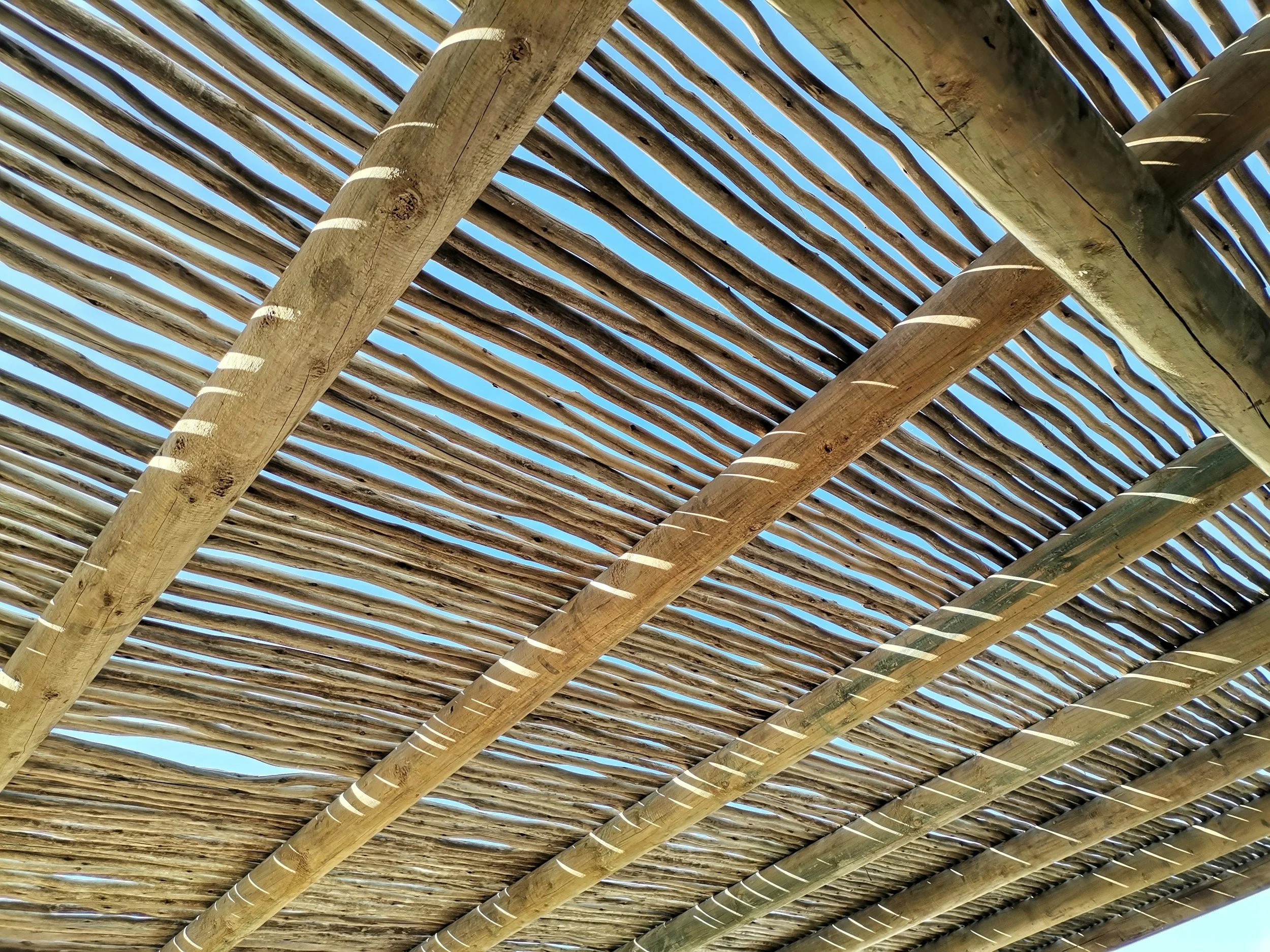A Tabernacles Trilogy 1. Our green and pleasant land.
There’s something quite magical and evocative about a warm September afternoon. The air may retain its early morning autumnal chill, the grass, which had turned brown until a week or so ago, is green once more, and leaves are beginning to fall to cover the acorns scattered on the ground.
To top it all, the fields have been invaded by hay bales, which sit peacefully, possessing a proportional beauty somehow pleasing to the eye, awaiting transport to who knows where?
Rarely do we see how they’ve formed; it’s an agricultural conjuring trick. You wake up one morning, go for a walk, and the field that not a week or so ago was knee-high in grass or wheat has been harvested and transformed into bales.
There is a certain peace in a field strewn with bales. It’s difficult to put your finger on it, but there is that ‘Ahh, all is well with the world’ feeling, even if it is not. Forget expensive therapies, find a field with haybales and breathe. The quiet, the peace, the lovely aromas, and the light tan colours have only come about after the mowing, cutting, and baling of a combine harvester. There are no screams, of course, but it’s noisy work separating the grain from the straw and the chaff.
That tearing apart of the useful from the useless or the waste is a picture of the sudden polarisation of our society.
With society at large witnessing the formation of Farage’s Reform Party situated to the right of the Conservative Party, Corbyn’s, Your Party, sitting to the left of the Labour Party, and the radical Islamists, everyday Muslims, and Palestinian supporters shouting ‘Free Palestine From the River to the Sea’, it feels as if Britain’s seams are being stretched and tested as never before.
Add to that Scottish nationalism and the ructions over leaving the EU, and we can view the past few years either as a demonstration of the robustness of our democracy or a threat to its integrity.
So, is it escapism or good sense to find a field and simply enjoy the sight of a good harvest and luxuriate in the warmth of a sunny September afternoon?
the choice between escapism and good sense is a false dichotomy
In Old Testament days, the men of Israel were commanded to travel to Jerusalem three times a year to celebrate three feasts: Passover, Pentecost, and Tabernacles. That’s at least three weeks ‘off work’ per annum, away from work and wars, in addition to the weekly Sabbath.
There’s some wisdom in that, isn’t there?
Tabernacles, or Sukkot, as it’s also called, is right around the corner, sunset on Monday, October 6th and ends at sunset on Monday, October 13th, coinciding with harvest, the end of the agricultural year. Special ‘booths’ are constructed; it might be a plastic corrugated roof covered with palm branches and pampas grass on top to remind Jews of the temporary tents (tabernacles) they constructed on their journey through the desert to the Promised Land. Jews today meet in replica booths under the roof, to eat and drink, recite prayers, and swap news. It’s provides an occasion to remember the past but also a look into the future, as we all do when we take a break.
It is also a call to unity. Jews of all political persuasions meet under the branches, under the roof, in the booth.
I hope you can see what I’m saying?
In church, amongst Christian believers, there has been much talk and many sermons preached about Passover and Pentecost. But we have a deep spiritual need, whether we are Christians or not, to hear the message of Tabernacles, or Sukkot and to meet together under a roof with holes, somewhat open to the heavens, so that we experience a fellowship that transcends political differences and is open to God in heaven, like the light streaming through the roof; not an atheistic socialist utopia of unachievable equality and unity, or a capitalistic freedom that turns a blind eye to the losers, but a deeper note, a reverberation, the call of the Spirit of God. You know it when you hear it.
It's a call to the satisfaction of harvest, a call to completion, a call home, to feet up, to rest, for barriers to collapse, and friendship with neighbours and God to soak into work and world-weary souls.
So, the choice between escapism and good sense is a false dichotomy. To escape, to take time out, to celebrate, to worship, is time well spent; and it is good sense. There are plenty of days to attend to the affairs of the world of work and life.
Go for a drive, maybe. Find a field with hay or straw bales. Go in. See if you don’t go ‘Ahhh’ and relax to your core.

